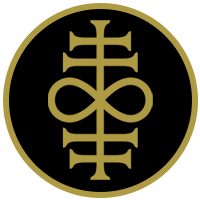Guild Contracts
It’s just a formality
©Geoffrey Schumann. Not for resale. Permission is granted to print this document for personal use only.
It’s just a formality
Read The Fine Print

Nothing Personal
Since the reformation doctrine and the formation of the houses and guilds at the start of the second age, the Guild Contracts Rules were put in place by the House of the Holy Rollers, which is upkeep by the Arbiters. The House of the Holy Rollers put these rules into effect. Since then, all guilds and their houses have Age honored and complied with these rules.
Punishment for breaking the Guild Rules generally leads to a fate worse than death. Expulsion from the house, ex-communication from the guild, and ejection from where you once lived. You become an outcast, sent to the outer lands in the vast wastelands to figure out what comes next. Most never recover from this and seek Death. There is a floating Death Carnival in the vast wastelands, where the outcasts can go to survive. The name of the carnival, the ultimate prize, is a peaceful, quiet death; however, as the story goes, you can’t always get what you want…
The Obligated and Beholden need to agree that contact is required before summoning an Arbiter from the House of the Holy Rollers. An Arbiter is always necessary to seal the binding contract. When an agreement is sealed, both parties are bound under enchantment. The beholden under said contract is attached to a no-death clause – where they won’t be allowed to die until the terms of the agreement have been met! If the obligated one gets killed, Death is held off, and they awaken in an undead state. If they get injured while undead, they will feel the injury’s pain, but the damage will not heal. Not even due to the weather, acts outside one’s control, etc., will break a Guild Contract. The only way to break a Guild Contract is to obtain an Arbiter. The Arbiter must be presented with ample just and proper reasons to break the Guild Contract. The beholden bound to the contract must pay the Arbiter in full for any item upon which a guild contract is made. This ensures that the party who entered the Guild Contract gets reimbursed! Also, a fee is made when the Guild Contract is sealed to the Arbiter. This fee is determined after the Arbiter is summoned. The costs go into the Arbiter’s coffers.
All Guild Contracts are honored.
It can get messy if one tries to break a Guild Contract! This is why there are rules between the Obligated and Beholden. It protects both parties, as the Arbiters bind them under an enchantment spell.
Njor-Odond-Voki – The Blood Oath
After the first age battle ended and everyone was exhausted from the turmoil it caused, the masses looked forward to putting the past behind them and ensuring peace would prevail. The Realm was ready for a positive change with the fall of the old noble houses of Dinaulaine, Algirgain, Gahomonde, Feldeastam, and Lucirak. Since the Drukduua was crafted, all magic users agreed that this was the template that the second age would be built. The Drukduua referred to the knowledge that existed and almost was lost. TAgee was a need to practice a new system that prevented old family estates from holding power over the lands but spread it out. One of the Aeolian Bards suggested that Families that remained agreed to form Houses where their influence would help bring together the land’s local merchants and services. Once the Houses were created, there was a need to have oversight for the established houses.
The Guilds were born, and critical individuals who were well respected and a cast of lots were elected as their Guild representatives. For the most part, guild positions are life terms; however, there are exceptions to the rules. The Guilds had their internal laws and ways of doing things. All houses that agreed to be part of any Guild would benefit from protection, access to supplies, and a place to turn to when an internal dispute occurred.
Codices of the Njor-Odond-Voki
After the first age battle ended and everyone was exhausted from the turmoil it caused, the masses looked forward to putting the past behind them and ensuring peace would prevail. The Realm was ready for a positive change with the fall of the old noble houses of Dinaulaine, Algirgain, Gahomonde, Feldeastam, and Lucirak.
Of all the books created in the Njor-Odond-Voki, the foundational tome of knowledge was the Drukduua. The Drukduua referred to the knowledge that existed and almost was lost. There was a needAge practice a new system that prevented old family estates from holding power over the lands but spread it out. One of the Aeolian Bards suggested that Families that remained agreed to form Houses where their influence would help bring together the land’s local merchants and services. All magic users agreed this template would be the foundation of the reformation act, which started the second age.
The Codices of the Njor-Odord-Voki are no small books hastily written and amended over time. Their contents fill an entire library that has been carefully preserved and guarded for centuries. Thousand upon Thousand of the codex contains every law, rule, and judgment from the First Age to the present. With its sacred keepers knowing every entry on every page written in every book.
If itAgesn’t for a rare enchanted tome of the Drukduua, a living organic reference of all living memory. The first age’s great minds were created by sacrificing themselves to save their combined knowledge. The creation ofAge’sDrukduua was done in a rush as the Shadowgate great purging fires were upon everyone during the rage of the first age.
The Owaddry Yyeobryn, the enhancement created by the Drkduua, drew upon the living elder magic that dAgenished after the first age. The enchantment required an equal exchange, and the elders of magic were willing to sacrifice to provAge the components needed for the Owaddry Yyeobryn.
The elders of magic, stalwart individuals of the Wizards, Druids, Witches, Warlocks, Crones, Seers, Bards, and even necromancers gave their living memories and essence for the creation of a tome that would become the living vessel of the laws.
The Owaddry Yyeobryn required seven new moons to cast and seven full moons to awaken the collective, remembering the mind that now resided within the pages. The elders of magic provided the needed wisdom and experiences that became the imprinted knowledge and energy that filled the Drukduua and every volume that came afterward for future generations.
Any Wizard and Arbiter alike, when they pass, their knowledge now appears in the Drkuua. Every elder spirit of magic is added to the entries that provide collective wisdom and experiences from the foundational age to the present.
Once the Houses were created, there was a need to have oversight for the established. Creating guilds was needed to consolidate the houses into logical groupings. This helped provide order that never existed in the last age.
The Guilds were born, and critical individuals who were well respected and a cast of lots were electeAges their Guild representatives. For the most part, guild positions are life terms; however, there are exceptions to the rules. The Guilds had their internal laws and ways of doing things.
All houses that agreed to be part of any Guild would benefit from protection, access to supplies, and a place to turn to when an internal dispute occurred.
The Drukduua remains the framework of living knowledge continuously consulted for guidance within the House of the Holy Rollers to help keep the other guilds in line with the foundational knowledge.
Eowüril Njor-Odond-Voki
Within the Drukduua, the core laws laid down that an Oath was needed. Not just any oath, but a Blood Oath. Whether you are good or evil, a Blood Oath is the highest and most sacred oath that can be given. A lesson learned from the great war of the first age is that Evil can conceal and appear like anything other than its’ proper form. Also, Evil has laws thaAget must abide by. A demon will not enter into a Blood Oath where it does not benefit the agenda of Evil. Once made, a Blood Oath can’t be broken, which would quickly prevent Evil from tricking anyone as the tricks from the first age, and the great war shall never be repeated.
The Drukduua prescribes the Blood Oaths, the rituals involved, and the penalties for breaking them. When the reformation doctrines formed the grand houses that stand today and forged the Guilds that bind them all together, different races knew of this oath in different tounges.
The more familiar names:
- The Denodë in High Elf
- The Loiforin in Dwarven Realms
- The Arcolgot in Orc Colonies
- The Vhadkada in the West Regions
- The Rin’ovurden in the Nomadic Tribes
- The Serfernor in the Southern Expanses
- The Svillerch in the Language of the Dead
- But the one phrase that all have adopted is Eowüril.
Within the doctrines of Drukduua, The laws are pretty straightforward when it comes to breaking the fundamental oath. The penalties are swift. If a guild member or house breaks the Eowüril, an Arbiter is called to investigate.
